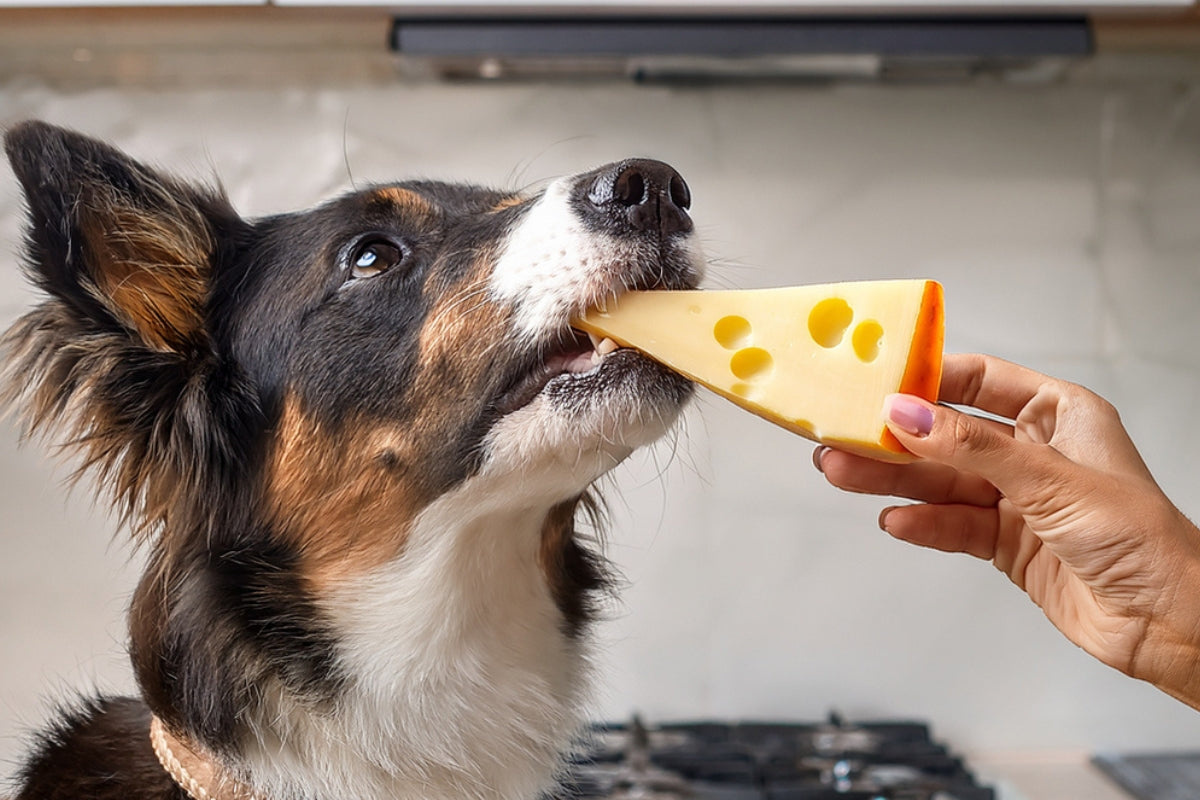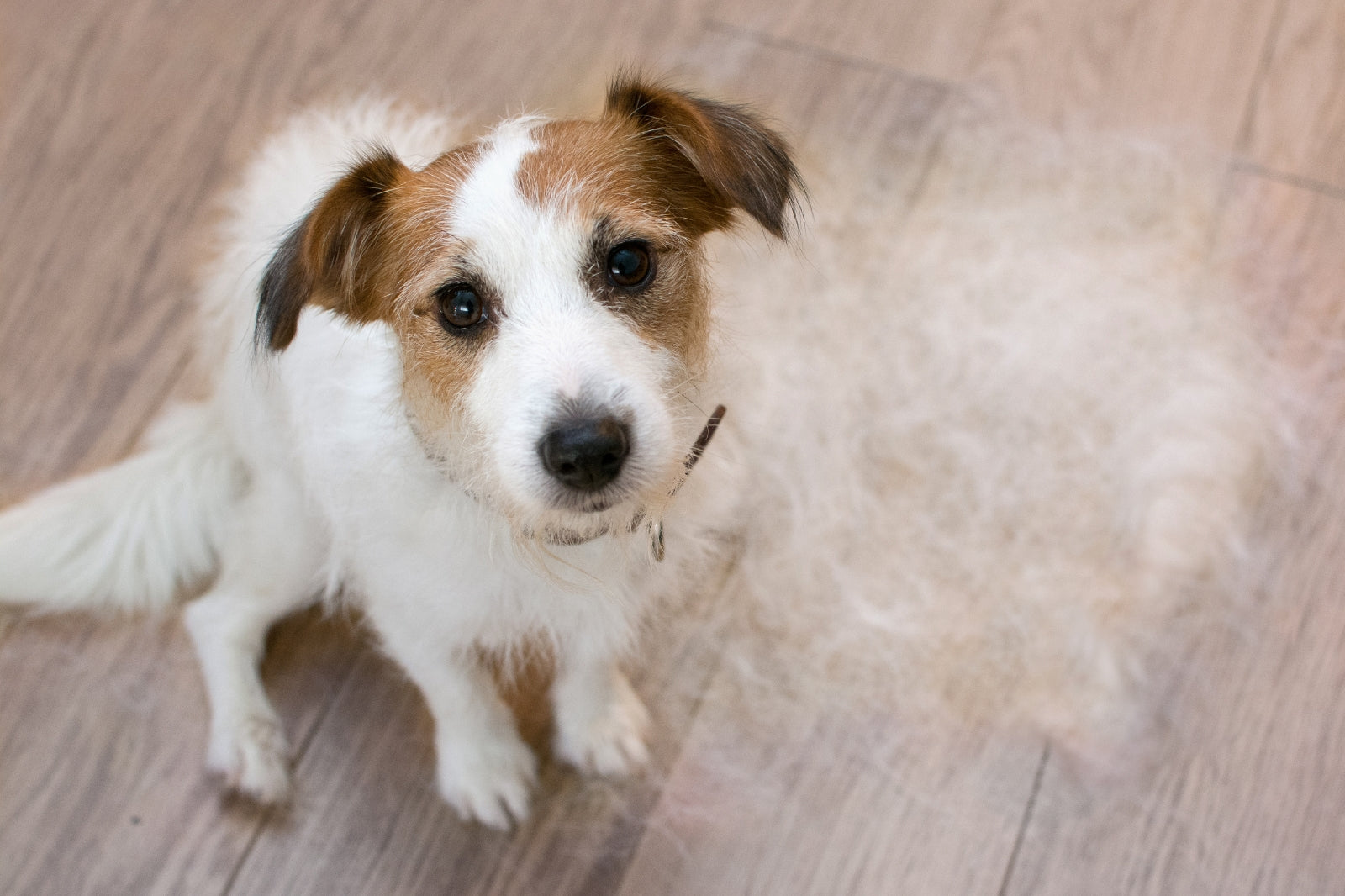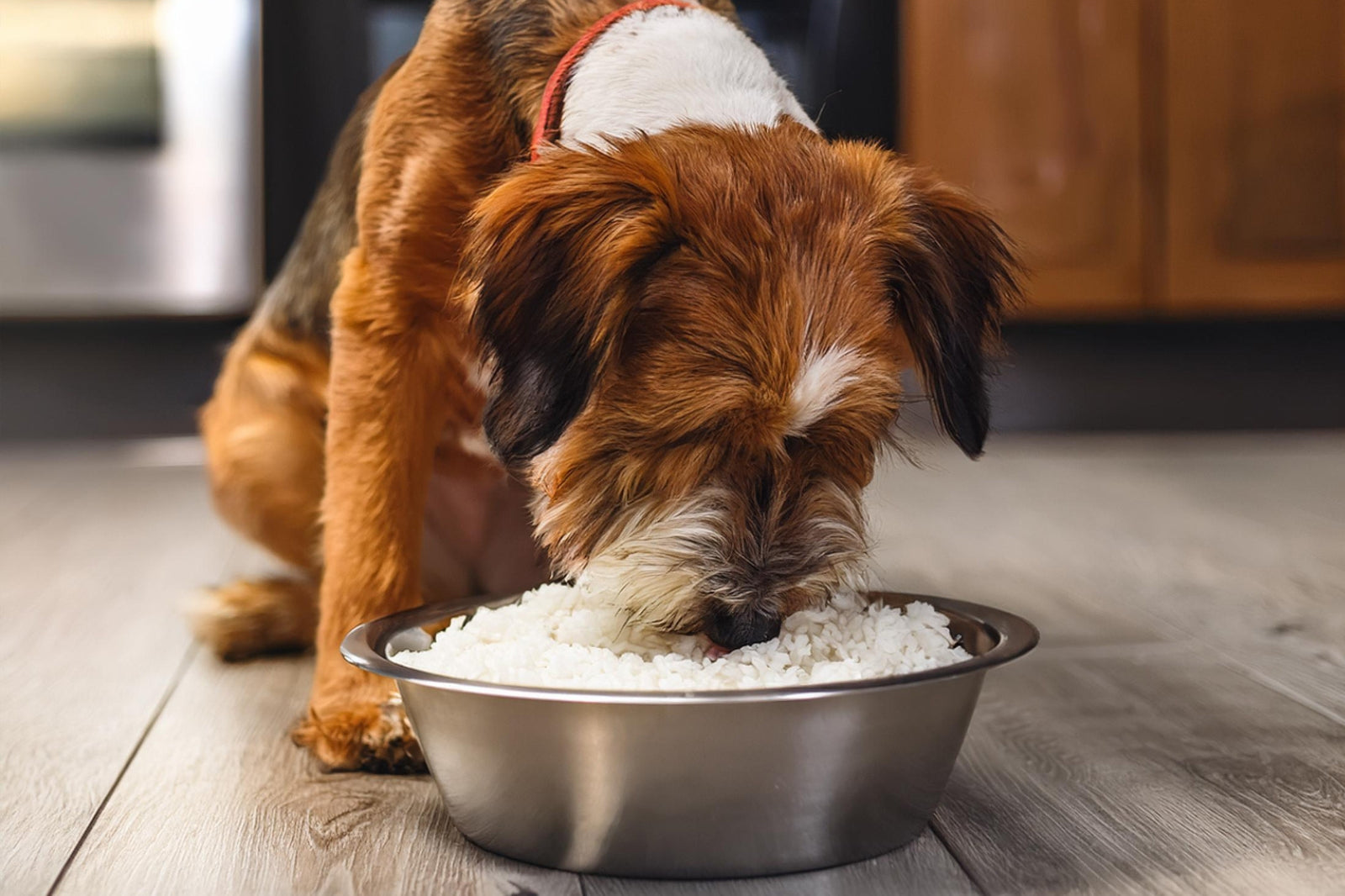Cheese – it's creamy, savoury, and undeniably delicious. For many of us, it's a staple in our diets. But... Have you ever wondered if it's safe for your dog to eat cheese? Find out in this blog post!
Can dogs eat cheese?
The short answer is: yes, dogs can eat cheese, BUT. Generally speaking, some types of cheese are safe for dogs to eat but your pooch should only be fed a tiny amount. Why? Because dogs are lactose-intolerant and their dairy intake should be kept to a minimum. Consumption of cheese or other dairy products can lead to gastrointestinal upset in these dogs, causing symptoms like diarrhoea, gas, or stomach discomfort.
If your dog's stomach gets easily upset, it's probably best to avoid cheese. Same if they have pancreatitis, due to the high fat content in most cheeses.
What type of cheese is safe for dogs?
Blue cheese
No, blue cheese is not safe. This type of cheese contains fungus, which doesn't agree with dogs' digestive systems and can cause multiple reactions, from vomiting to diarrhoea, fever, and even seizures.
Cottage cheese
Yes, dogs can eat small amounts of cottage cheese. Because it is lower in fat and sodium than many other cheeses, it's actually the best option for an occasional cheesy treat.
Cream cheese
Plain cream cheese is safe, however, many cream cheeses contain chives, onions, or garlic, which are all poisonous to dogs and should absolutely be avoided.
Opt for low-fat, low-sodium cheeses like mozzarella or cottage cheese when sharing with your dog. These varieties are generally easier on their stomachs and contain fewer additives that could be harmful. Always ensure that the cheese is served in small, bite-sized pieces to prevent choking hazards. Feeding your dog cheese should be done in moderation. Cheese is often high in fat and calories, which can lead to weight gain and other health issues if given excessively.
Want to know more about the foods your dog can eat? Check out these posts about the fruits and vegetables that are safe for your pooch.




Leave a comment
This site is protected by hCaptcha and the hCaptcha Privacy Policy and Terms of Service apply.